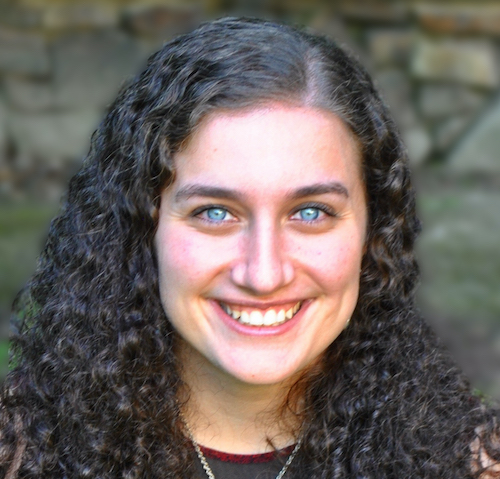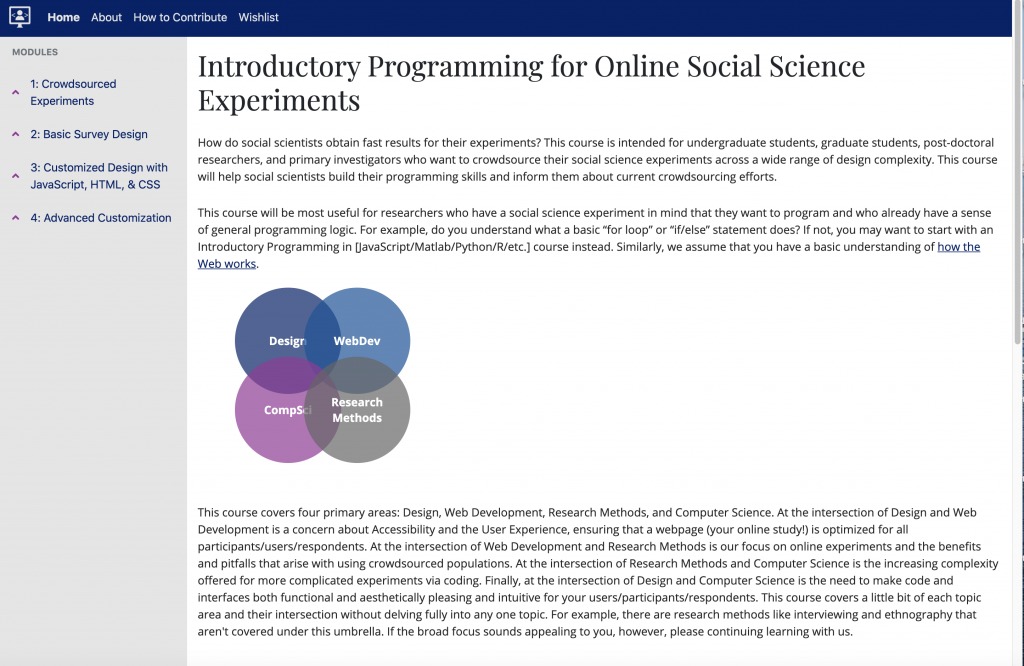The Bass Digital Education Fellowship program is a joint effort by Duke Learning Innovation and the Duke Graduate School that began in 2019. This academic year, the Digital Education program welcomed its second cohort of Bass fellows. These six fellows took part in a year-long fellowship that offers PhD students an opportunity to collaborate on digital projects in partnership with Duke faculty and under the guidance of Learning Innovation.

Christina Bejjani, who graduated with her PhD in Psychology and Neuroscience from Duke University this Spring, crafted her Bass project to address research needs in the social sciences at Duke. In particular, Bejjani wanted to provide undergraduate students the opportunity to get involved in the research process. Through the creation of an open-source GitHub repository and Coursera aimed at the Duke population, Bejjani provided a living resource that prepares students for the turn to online research as well as a means of learning transferable skills such as research methods and coding.
Designing a GitHub Course Site
During Fall 2020, Bejjani designed, created and coded the Github course “Introductory Programming for Social Science Experiments.” Consisting of four modules — Crowdsourced Experiments, Basic Survey Design, Customized Design with Javascript, HTML & CSS and Advanced Customization — this course is designed to, as the summary of the course goals state, teach students “learn about and apply your knowledge of crowdsourcing” and “read and write code for online studies.”
A major benefit of the course being hosted on GitHub is, as Bejjani noted, that it can grow and change over time.
“The fact that this site is on Github means that students can also be brought into the learning process,” Bejjani said at the Bass Digital Education Fellows spring showcase, “with code from the site as an example within lessons, but with the opportunity to also become contributors, where if something is unclear, they can also edit the site, or even add their own projects as examples in the code examples folder on the repository.”

Creating a Duke Coursera Course
In Spring 2021, Bejjani began translating the course material she developed for the GitHub site into a Coursera for Duke course. To do so required Bejjani to learn new skills such as video editing and to consider the differences in the two course mediums.
You can hear Bejjani speak more about her work by watching her presentation for the Bass Digital Education Fellowship Spring Showcase below:
Bejjani now works at Guild Education.
Learn More
You can read more about the general Bass Digital Education program experience, including the professional development opportunities offered to fellows.
If you are interested in learning more about participating in the Bass Digital Education Fellows program, subscribe to our newsletter to receive an alert when applications open for the next fellowship cohort. Applications for the 2020-2021 session are closed, but we provide more information for the 2022-2023 academic year in Fall 2021. Applications are submitted through the Graduate School. To see a full list of eligibility criteria and required application materials, visit the Graduate School site.
